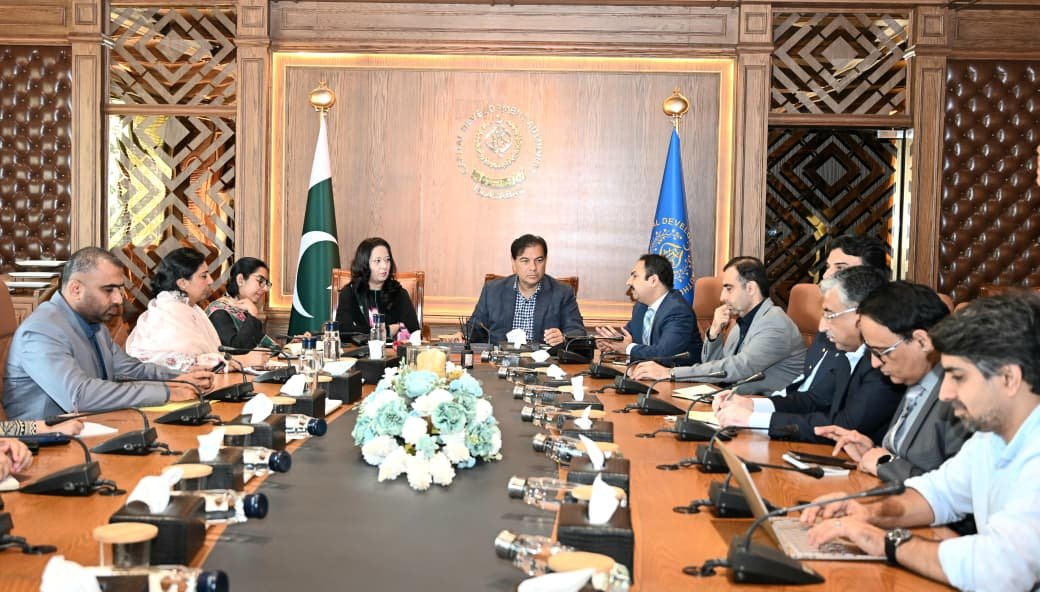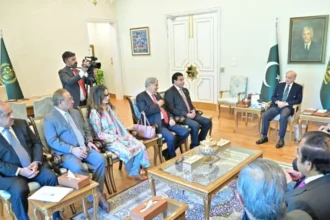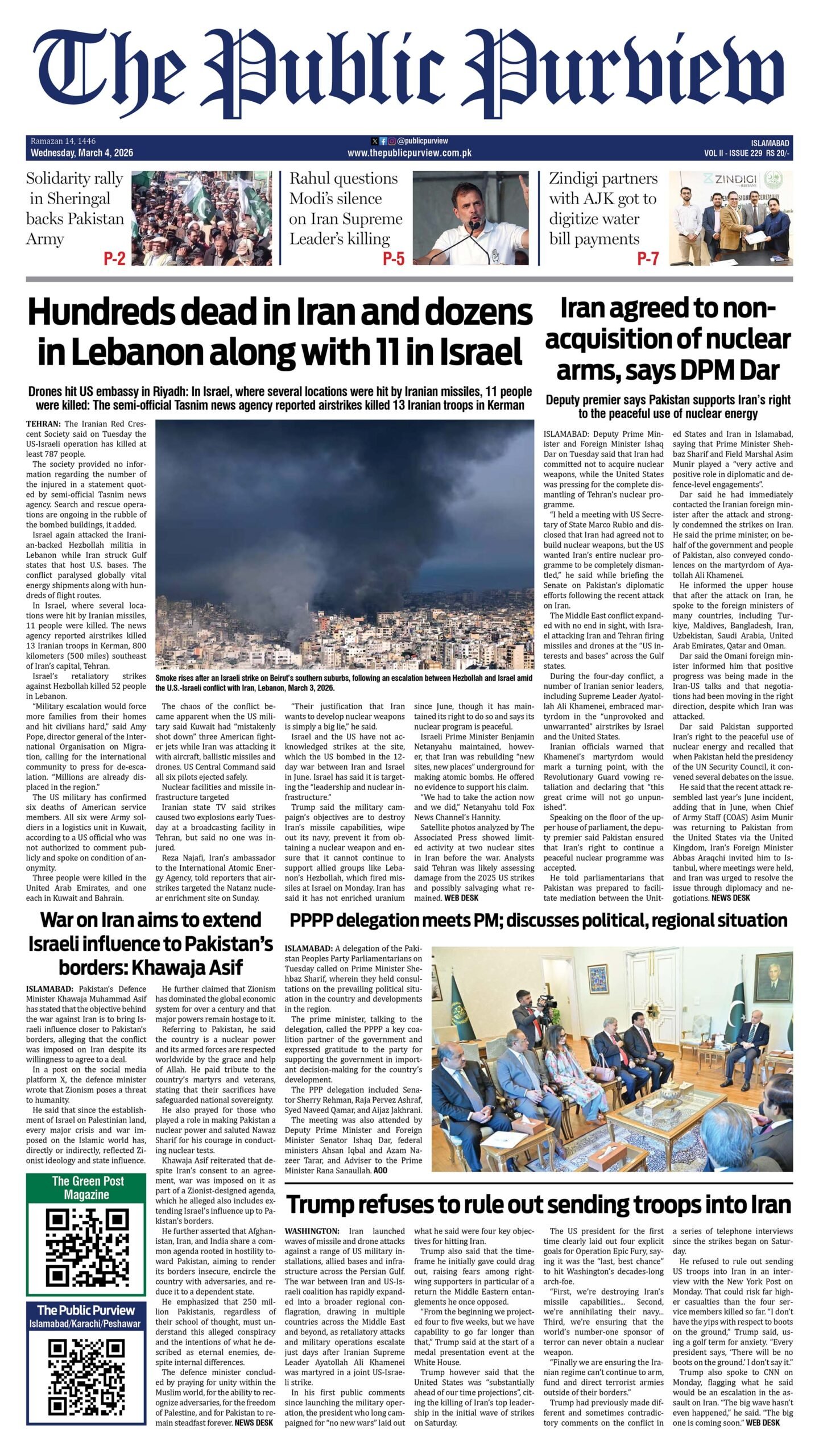Islamabad – Chairman Capital Development Authority (CDA) and Chief Commissioner Islamabad Muhammad Ali Randhawa, along with Director General Pakistan Environmental Protection Agency (Pak-EPA) Nazia Zeb Ali, chaired a meeting at CDA Headquarters on Monday. The session finalized Islamabad’s air pollution strategy and smog prevention plan. Member Planning and Design Dr. Khalid Hafiz, Member Engineering Syed Nafasat Raza, Member Environment Esfandyar Baloch, Deputy Commissioner Islamabad Irfan Nawaz Memon, DG Resources Pak-EPA, and other officials attended the meeting.
Chairman Muhammad Ali Randhawa said that all relevant institutions, in collaboration with Pak-EPA, will jointly implement a comprehensive strategy to reduce smog and improve air quality. He added that, as per the directives of Prime Minister Shahbaz Sharif and Interior Minister Mohsin Naqvi, environmental protection and pollution control in the capital are top priorities.
During the briefing, Deputy Commissioner Islamabad stated that authorities are taking measures in the transport sector, brick kilns, and industries to cut smog. They are also conducting carbon emission tests on vehicles to control pollution. Officials now upload the collected data directly to a central dashboard. Pak-EPA shared that five certified laboratories currently test vehicle emissions in Islamabad. Chairman Randhawa directed officials to establish more checkpoints across the city to expand the testing network.
The meeting also reviewed pollution from brick kilns and industrial units. It was decided that all kilns and industries in Islamabad must shift to modern, eco-friendly technology by October 20, 2025. Authorities will take strict legal action against those who fail to comply. Chairman Randhawa instructed officers to dismantle kilns that violate Pak-EPA regulations. He also urged better coordination between Islamabad and Rawalpindi administrations to regulate kilns in boundary areas.
Meanwhile, Pak-EPA shared that one Air Quality Monitoring Station already operates in Sector H-8. Moreover, a city-wide project is underway to install more such stations. These facilities will provide real-time Air Quality Index data to support enforcement and policy planning.
The meeting also discussed other sources of smog, including open-air waste burning and dust from construction sites. Chairman Randhawa ordered a complete ban on waste burning and called for immediate legal action against violators. To control dust, he directed teams to ensure water sprinkling arrangements at all development sites. He also stressed strict enforcement of Standard Operating Procedures (SOPs) outlined in Environmental Impact Assessments (EIAs).
In conclusion, Chairman Randhawa said that strong coordination between CDA, Pak-EPA, and ICT administration is vital for the success of the air pollution strategy. He reaffirmed the government’s commitment to ensuring a clean and healthy environment for citizens through teamwork and consistent action.







 Today's E-Paper
Today's E-Paper